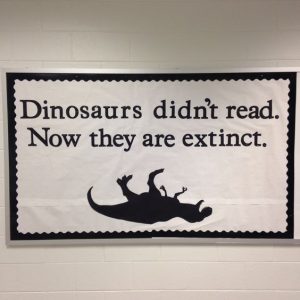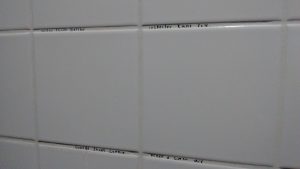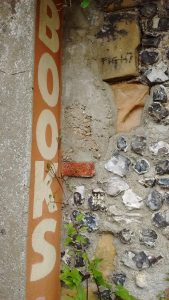This Week’s Bit of String: A Student’s Holiday Mix-Up
‘Miss, aren’t you excited about Christmas? Remember, Jesus died then!’
It was one of those teaching moments when you need Rewind and Slow Down buttons. ‘You mean He died just before Easter,’ I said.
‘No, He was born at Easter; that’s why there’s eggs everywhere, and baby animals. We celebrate Him getting killed at Christmas, by hanging stuff on trees.’
My student, in his first GCSE year at the time, had misinterpreted these symbols and traditions. But he legitimised it with evidence.

These days we hear of fake news, false equivalency, and other such ‘post-truth’ terms. Dangerous as those are in the political realm, the literary world has operated on a somewhat post-truth basis for some time—with the essential caveat that you cite passages to support your claims.
Evidence-gathering and interpretation are essential skills we get from studying literature. Interpreting characters’ motives, which builds empathy and social skills; plus interpreting the culture and time period the author belongs to.
In the UK, Year 10 and 11 students (aged 14-16) must earn a General Certificate of Secondary Education in Literature. The national exam board offers a limited range of literary works for students to be tested on: one of six selected Shakespeare plays, one of seven nineteenth century novels, one of twelve dramas or novels written since 1914 (by British authors only), and one themed ‘cluster’ of fifteen poems. Adolescents spend two years studying these four works, and then take the exam.
The list of literature options changed controversially two years ago, dropping American classics such as Of Mice and Men, and To Kill a Mockingbird. After the fuss kicked up over the changes, do the remaining options qualify as literature?
Interpreting Characters

To me, several of the GCSE offerings lack character depth. I haven’t read all of them, and I don’t dislike any of them. I’m just not sure they’re literature. An Inspector Calls and Blood Brothers share upper class villains, while several other books such as Animal Farm, Lord of the Flies, and Dr. Jekyll and Mr. Hyde have quite clear-cut ones as well. Scrooge and Mr. Darcy undergo transformations, but their paths are quite obvious. There’s not a lot of mystery on why they change; students need do no serious detective work to examine it.
The most interesting characters are probably the plethora of bystanders and enablers in these tales: Mr. Bennett neither humouring nor challenging his wife’s ridiculous behaviour and Mrs. Lintott apparently looking the other way regarding her beloved co-worker’s paedophilic tendencies; the animal subjects of Animal Farm and the other boys on the Lord of the Flies Island.
Probing the motives of those who get caught in the action and end up almost unwittingly serving as catalysts is particularly relevant today, as far-right factions take hold in more governments. What drives a Macbeth and a Dr. Frankenstein? Let’s hope the exam board will encourage that sort of discussion.
Interpreting Culture and History
I don’t think Americans are going to suffer for no longer being represented in the GCSE curriculum; we’re not exactly a silent, repressed minority. The requirements for modern literature include stories by second-generation immigrants, and some about immigrants, too, plus Curious Incident, about a boy on the autism spectrum. And there are plenty of plots that highlight (sometimes glaringly, as in the aforementioned Inspector Calls and Blood Brothers) issues surrounding class and socioeconomic status.
It’s a decent start. Each one has its own argument to pick with the world, as I previously noted Salmon Rushdie said books must do. Each one attempts to harrow us a little bit, with various degrees of effectiveness.

Teacher Tom Payne, writing in The Telegraph (which also, being The Telegraph, gave Conservative then-Minister of Education an opportunity to defend the changes in literature choices), raised this concern: ‘does this [rule that post-1914 literature studied must originate from the British Isles] mean that the question of Britain and its former empire has to be examined from the perspective of these islands? After all, much of the best literature on the subject comes from the lands Britain colonised: the Empire writes back.’
This is a good point. The removal of OMAM and TKAM disappointed me because I’d seen white students infatuated with the ‘n-word.’ Often, their perspectives matured after reading Of Mice and Men, as they realised the actual conditions from which the word derived its power; the threat and malice behind it. It’s important to keep those issues present in the literature we teach adolescents, because recognising others’ suffering, often at the hands of our own governments and even at benefit to ourselves, is an essential argument to keep putting before the world. And as fake news proliferates, the classics set a standard for us that’s not easily misinterpreted.